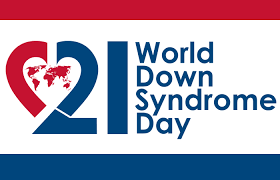
Last week was a crowded one if we look at the different special international days commemorated globally.
On March 24th we had the sixth international day for the Right to the truth concerning gross human rights violations and dignity of victims, a day full of significance for Nepal where still many families are lost in a double quest of searching for truth while at the same time looking for justice of their kin killed during the civil war.
On the same day World Tuberculosis Day was celebrated with a stark reminder that a country like Nepal has still so much to do to defeat this disease that every year hits eighty thousand persons killing seven thousand of them.
If it wasn’ t enough 22nd of March was World Water Day, another very timing topic if we think about the natural resources from Himalayans.
Last but not least we had another international day commemoration, something that went almost unnoticed: World Down Syndrome Day that falls on 21st of March of each year.
The call for action of this important day this year was “My Friends My Community - The benefits of inclusive environments for today's children and tomorrow's adults”, stressing how having supporting and caring attitudes towards children and persons living with Down Syndrome can create inclusive communities where persons with
The campaigners in a specifically created web site for the day (https://worlddownsyndromeday.org) explain that “prevailing negative attitudes result in low expectations, discrimination and exclusion, creating communities where children and adults with Down syndrome cannot integrate successfully with their peers. But where children with Down syndrome and other disabilities are given opportunities to participate, all children benefit from this and environments of friendship, acceptance, respect for everyone and high expectations are created”
With changes in attitudes, we can lay the foundations for ensuring that local communities are open and keen to truly accept and acknowledge not only the mere existence of persons living with Down syndrome and other types of disabilities but also their right to be involved and participate in society as equal citizens.
The organizers say “ but these( inclusive) environments prepare all today’s children for life as tomorrow’s adults, enabling adults with Down syndrome to live, work and participate, with confidence and individual autonomy, fully included in society alongside their friends and peers”.
It is a fundamental mistake thinking of persons living with Down syndrome or other disabilities either physical or intellectual just through the lens of sympathy and piety or about how much space we, the so called the “physically and intellectually able” members of the society could offer them.
This approach is totally wrong because it is not up to us to give them anything, it is simply their right and prerogative to claim what it is already theirs.
When conditions of persons living with disabilities do not allow them to proactively demand their rights, then we have bold family members who step in and advocate on their behalf. How can we help them in educating their children?
What can the private sector do to employ their children not out of compassion but out of an inclusive approach of doing business?
We should have a real conversation on practical meanings of more inclusive communities and spaces for children and adults living with disabilities. Which changes are we ready to make to practice inclusion in our daily lives?
Which lessons from family members of children with Down syndrome are we ready to incorporate in our lives?
How long will it take to understand that making our villages and urban space more inclusive can be a real “win win” for all because our lives can be literally enriched by working and living side by side with persons with disabilities?
World Down Syndrome Day in Nepal was celebrated through a talk program organized by Down Syndrome Society, Nepal founded and directed by Shila Thapa a formidable activist and lovely mother who changed her life to improve the living conditions of children with Down syndrome living in Nepal.
Deputy Prime Minister and Minister of Women, Children and Social Welfare Mainali presided at the event promising prompt action by the government to improve the living conditions of children with Down syndrome.
I sincerely hope that the Government will take some long term action to strategically frame issues related to children and persons with Down syndrome but we know how tough it is to switch from words to deeds even when the best intentions are in place.
Last week also saw the organization of the Girl Summit chaired by President Bhandari and attended by Prince Harry.
I did some homework and I revised the commitments taken by the participants of the previous global Girl Summit held in 2014. http://www.girlsummit2014.org/Commitment/Show
I soon realized that the 2014 summit and the one just concluded in Nepal were specifically focused on female genital mutilations ( FGM) and child marriage with the latter predominant last week because it is a real scorn for millions of children in Nepal and in South Asia.
I did not find a single word or commitment on empowering girls living with disabilities never mind any reference to supporting girls with Down syndrome.
UK AID, the main organizers of the two editions of the GIRL Summit, must be praised for its overarching commitment towards girls ‘empowerment not only in Nepal but globally.
Clearly FGM and child marriages must be eliminated for good if we want to have millions of girls out of chronic poverty.
Nevertheless it is a real pity that still too many development actors while talking about inclusion and mainstreaming of disability in overall development work have huge work to do before walking the talk.
Only the love, care and kindness children with Down syndrome practice and share can really make us understand how much we are missing from excluding them from society.










Add new comment